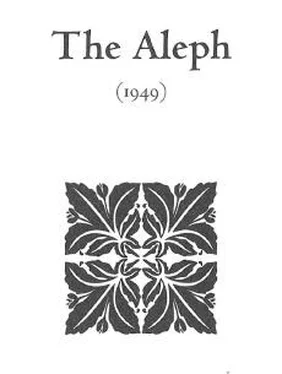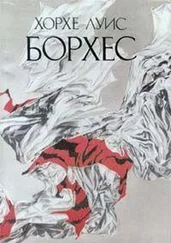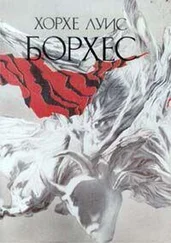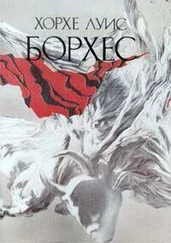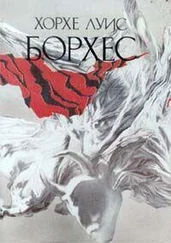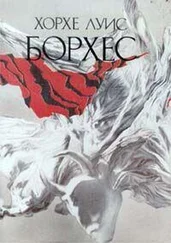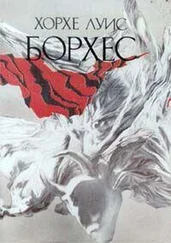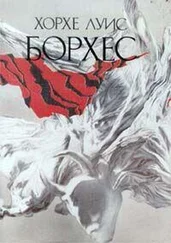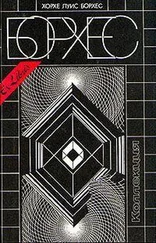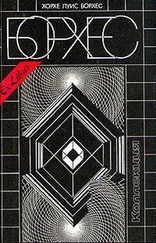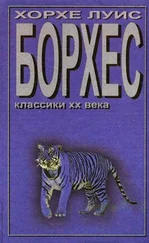Хорхе Борхес - Collected Fictions
Здесь есть возможность читать онлайн «Хорхе Борхес - Collected Fictions» весь текст электронной книги совершенно бесплатно (целиком полную версию без сокращений). В некоторых случаях можно слушать аудио, скачать через торрент в формате fb2 и присутствует краткое содержание. Год выпуска: 1999, ISBN: 1999, Издательство: Penguin (UK), Жанр: Старинная литература, на английском языке. Описание произведения, (предисловие) а так же отзывы посетителей доступны на портале библиотеки ЛибКат.
- Название:Collected Fictions
- Автор:
- Издательство:Penguin (UK)
- Жанр:
- Год:1999
- ISBN:9780140286809
- Рейтинг книги:5 / 5. Голосов: 1
-
Избранное:Добавить в избранное
- Отзывы:
-
Ваша оценка:
- 100
- 1
- 2
- 3
- 4
- 5
Collected Fictions: краткое содержание, описание и аннотация
Предлагаем к чтению аннотацию, описание, краткое содержание или предисловие (зависит от того, что написал сам автор книги «Collected Fictions»). Если вы не нашли необходимую информацию о книге — напишите в комментариях, мы постараемся отыскать её.
Collected Fictions — читать онлайн бесплатно полную книгу (весь текст) целиком
Ниже представлен текст книги, разбитый по страницам. Система сохранения места последней прочитанной страницы, позволяет с удобством читать онлайн бесплатно книгу «Collected Fictions», без необходимости каждый раз заново искать на чём Вы остановились. Поставьте закладку, и сможете в любой момент перейти на страницу, на которой закончили чтение.
Интервал:
Закладка:
Under Mrs. Ching's calm command, the ships launched forth into danger and onto the high seas.
THE COMMAND
Thirteen years of methodical adventuring ensued. The fleet was composed of six squadrons, each under its own banner—red, yellow, green, black, purple—and one, the admiral's own, with the emblem of a serpent. The commanders of the squadrons had such names as Bird and Stone, Scourge of the Eastern Sea, Jewel of the Whole Crew, Wave of Many Fishes, and High Sun. The rules of the fleet, composed by the widow Ching herself, were unappealable and severe, and their measured, laconic style was devoid of those withered flowers of rhetoric that lend a ridiculous sort of majesty to the usual official pronouncements of the Chinese (an alarming example of which, we shall encounter shortly). Here are some of the articles of the fleet's law:
Not the least thing shall be taken privately from the stolen and plundered goods. All shall be registered, and the pirate receive for himself out of ten parts, only two: eight parts belong to the storehouse, called the general fund; taking anything out of this general fund without permission shall be death.
If any man goes privately on shore, or what is called transgressing the bars, he shall be taken and his ears perforated in the presence of the whole fleet; repeating the same, he shall suffer death.
No person shall debauch at his pleasure captive women taken in the villages and open spaces, and brought on board a ship; he must first re-quest the ship's purser for permission and then go aside in the ship's hold. To use violence against any woman without permission of the purser shall be punished by death.*
Reports brought back by prisoners state that the mess on the pirate ships consisted mainly of hardtack, fattened rats, and cooked rice; on days of combat, the crew would mix gunpowder with their liquor. Marked cards and loaded dice, drinking and fan-tan, the visions of the opium pipe and little lamp filled idle hours. Two swords, simultaneously employed, were the weapon of choice. Before a boarding, the pirates would sprinkle their cheeks and bodies with garlic water, a sure charm against injury by fire breathed from muzzles.
The crew of a ship traveled with their women, the captain with his harem—which might consist of five or six women, and be renewed with each successive victory.
THE YOUNG EMPEROR CHIA-CH'lNG SPEAKS
In June or July of 1809, an imperial decree was issued, from which I translate the first paragraph and the last. Many people criticized its style:
Miserable and injurious men, men who stamp upon bread, men who ignore the outcry of tax collectors and orphans, men whose small clothes bear the figure of the phoenix and the dragon, men who deny the truth of printed books, men who let their tears flow facing North—such men disturb the happiness of our rivers and the erstwhile trustworthiness of our seas. Day and night, their frail and crippled ships defy the tempest. Their object is not a benevolent one: they are not, and never have been, the sea-man's bosom friend. Far from lending aid, they fall upon him with ferocity, and make him an unwilling guest of ruin, mutilation, and even death. Thus these men violate the natural laws of the Universe, and their offenses make rivers overflow their banks and flood the plains, sons turn against their fathers, the principles of wetness and dryness exchange places…
Therefore, I commend thee to the punishment of these crimes, Admiral Kwo-Lang. Never forget—clemency is the Emperor's to give; the Emperor's subject would be presumptuous in granting it. Be cruel, be just, be obeyed, be victorious.
The incidental reference to the "crippled ships" was, of course, a lie; its purpose was to raise the courage of Kwo-Lang's expedition. Ninety days later, the forces of the widow Ching engaged the empire's. Almost a thousand ships did battle from sunup to sundown. A mixed chorus of bells, drums, cannon bursts, curses, gongs, and prophecies accompanied the action. The empire's fleet was destroyed; Admiral Kwo-Lang found occasion to exercise neither the mercy forbidden him nor the cruelty to which he was exhorted. He himself performed a ritual which our own defeated generals choose not to observe—he committed suicide.
THE TERRIFIED COASTLINES AND RIVERBANKS
Then the six hundred junks of war and the haughty widow's forty thousand victorious pirates sailed into the mouth of the Zhu-Jiang River, sowing fire and appalling celebrations and orphans left and right. Entire villages were razed. In one of them, the prisoners numbered more than a thousand. One hundred twenty women who fled to the pathless refuge of the nearby stands of reeds or the paddy fields were betrayed by the crying of a baby, and sold into slavery in Macao. Though distant, the pathetic tears and cries of mourning from these depredations came to the notice of Chia-Ch'ing, the Son of Heaven. Certain historians have allowed themselves to believe that the news of the ravaging of his people caused the emperor less pain than did the defeat of his punitive expedition. Be that as it may, the emperor organized a second expedition, terrible in banners, sailors, soldiers, implements of war, provisions, soothsayers and astrologers. This time, the force was under the command of Admiral Ting-kwei-heu. The heavy swarm of ships sailed into the mouth of the Zhu- Jiang to cut off the pirate fleet. The widow rushed to prepare for battle. She knew it would be hard, very hard, almost desperate; her men, after many nights (and even months) of pillaging and idleness, had grown soft. But the battle did not begin. The sun peacefully rose and without haste set again into the quivering reeds. The men and the arms watched, and waited. The noontimes were more powerful than they, and the siestas were infinite.
THE DRAGON AND THE VIXEN
And yet each evening, lazy flocks of weightless dragons rose high into the sky above the ships of the imperial fleet and hovered delicately above the water, above the enemy decks. These comet-like kites were airy constructions of rice paper and reed, and each silvery or red body bore the identical characters. The widow anxiously studied that regular flight of meteors, and in it read the confused and slowly told fable of a dragon that had always watched over a vixen, in spite of the vixen's long ingratitude and constant crimes. The moon grew thin in the sky, and still the figures of rice paper and reed wrote the same story each evening, with almost imperceptible variations. The widow was troubled, and she brooded. When the moon grew fat in the sky and in the red-tinged water, the story seemed to be reaching its end. No one could predict whether infinite pardon or infinite punishment was to be let fall upon the vixen, yet the inevitable end, whichever it might be, was surely approaching. The widow understood. She threw her two swords into the river, knelt in the bottom of a boat, and ordered that she be taken to the flagship of the emperor's fleet.
It was evening; the sky was filled with dragons — this time, yellow ones. The widow murmured a single sentence, "The vixen seeks the dragon's wing," as she stepped aboard the ship.
THE APOTHEOSIS
The chroniclers report that the vixen obtained her pardon, and that she dedicated her slow old age to opium smuggling. She was no longer "The Widow"; she assumed a name that might be translated "The Luster of True Instruction."
From this period (writes a historian) ships began to pass and repass in tranquility. All became quiet on the rivers and tranquil on the four seas. People lived in peace and plenty. Men sold their arms and bought oxen to plough their fields. They buried sacrifices, said prayers on the tops of hills, and rejoiced themselves by singing behind screens during the day-time.*
Читать дальшеИнтервал:
Закладка:
Похожие книги на «Collected Fictions»
Представляем Вашему вниманию похожие книги на «Collected Fictions» списком для выбора. Мы отобрали схожую по названию и смыслу литературу в надежде предоставить читателям больше вариантов отыскать новые, интересные, ещё непрочитанные произведения.
Обсуждение, отзывы о книге «Collected Fictions» и просто собственные мнения читателей. Оставьте ваши комментарии, напишите, что Вы думаете о произведении, его смысле или главных героях. Укажите что конкретно понравилось, а что нет, и почему Вы так считаете.
